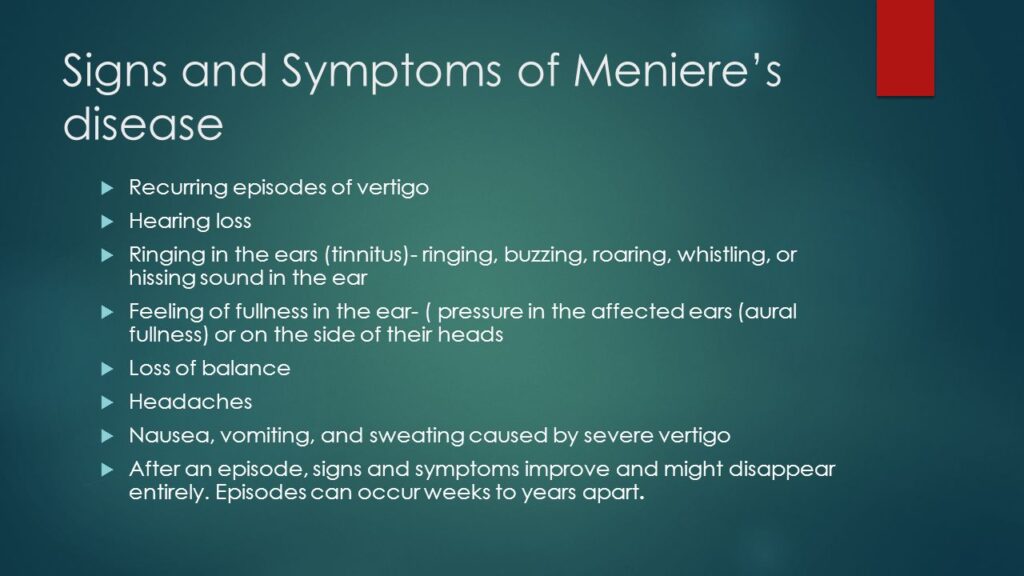Signs of Menieres Disease are usually easy to spot. The disease primarily affects males, though it can also affect females in certain cases. Symptoms include weight loss, low energy levels, decreased vision, and a decrease in appetite. Some symptoms of the disease may include a noticeable softening or lack of smell. Loss of muscle bulk is another sign of meniere’s disease.
The signs of meniere’s disease tend to appear suddenly and without any obvious reason. There are many different types of the disease, ranging from genetic causes to infections to diseases of the immune system. Common signs of the disease include lethargy, a loss of libido, loss of appetite, mood disorders, and hair loss.
The signs of meniere’s disease are not considered to be serious or contagious. However, they can greatly reduce your quality of life. If you suspect that you have the disease, make an appointment with your doctor as soon as possible. If left untreated, it could lead to a condition known as lymphedema. Lymphedema can cause swelling of the legs that can lead to pain, swelling, and deformity.
You can help detect the disease by trying to determine if you are experiencing any of the symptoms listed above. If so, consult your doctor to determine the cause of the symptoms. If a diagnosis of the disease is made, treatment can be started to prevent the condition from worsening. In some cases, treatment may require surgery or other more extreme measures.
The signs of meniere’s disease are easy to detect, but once you do, you need to take action quickly. Immediate measures will help you prevent permanent damage to your legs. It will also prevent the condition from worsening. You don’t have to put up with the pain, swelling, deformity, and possibly lifelong disability. Consult your doctor and get the treatment you need.
Some people never know they have the disease. If this is the case for you, don’t be ashamed. Your doctor will be able to tell you whether you have the disease or not.
Symptoms of the signs of meniere’s disease include abnormality and malformation of the legs, joints, and ligaments. If one or more of these areas are affected, walking will become very painful and will be extremely difficult. Other symptoms may include swelling, numbness, leg cramps, and difficulty walking. Additional symptoms that may be associated with the disease are skin discoloration, uneven growth, and unusual bumps or swelling. If any of these signs are present, visit your doctor immediately.
While the signs of meniere’s disease can be very disturbing and frustrating, you shouldn’t panic. The condition isn’t life-threatening or fatal. In fact, most cases only last a few months. Don’t allow the condition to control your life and be a nuisance. If you suspect you have the disease, get medical attention immediately.
The signs of meniere’s disease are only one of the many causes of this condition. Because of this, it is important to visit your doctor regularly. This will help detect any new symptoms that may be affecting your health. With regular visits, your doctor can catch any potential problems early enough to give you the care and treatment you need. While there is no cure for this condition, it can be managed and controlled so that you can lead a fuller and more fulfilling life.




